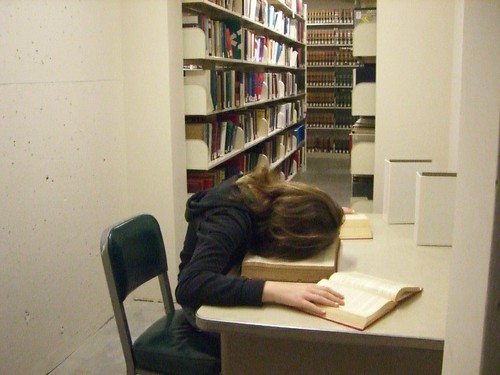
According to the University of Chicago Medical Center, studies have shown that adults today are getting an average of only 6.1 hours of sleep each night. By contrast, adults in 1900 reached nine hours of sleep.
Matthew Walker, a professor of neuroscience and psychology at the University of California Berkeley and author of Why We Sleep, said in his book that “human beings are the only species that deliberately deprive themselves of sleep for no apparent gain. Many people walk through their lives in an underslept state, not realizing it.”
In today’s society, the ability to deprive oneself of sleep has been taken to remarkably extreme levels. Rest has now been placed low on the priority list to make room for work or fun.
With technology harming sleep schedules, people must prioritize getting rest more than ever. Unfortunately, we are going in the opposite direction. Even as technology makes sleep more difficult, society still chooses to stay up late.
Artificial blue light messes up circadian rhythms, which are essential for sleep; the stimulation that technology brings makes it even more difficult to fall asleep. It also reduces the production of melatonin, a chemical that helps humans become sleepy.
Besides, technology is quite addicting. Netflix binges and video game grinds often occur in the evening, overlapping with bedtime. Choosing another Netflix show or just one more game is so much easier than sleeping early.
Sleeping comes with unprecedented benefits that more and more people are missing out on. Sleep improves the brain, heart, and immune system. It also helps with athleticism and weight. Everyone can benefit from a good night’s sleep, no matter what goals one wants to achieve.
“If we all slept enough, our healthcare burden would plummet, we would have better mental health and fewer suicides, our businesses would be more productive, global economies would be healthier, our roads would be safer, and our children would be smarter,” Walker said. “Sleep is the best insurance policy you could ever wish for.”
In addition, not sleeping enough has drastic consequences. In the short term, a person who does not get enough sleep will feel tired, which causes a lack of focus, energy, and coordination. That same person can also become more irritable, making it harder to enjoy activities.
The consequences get much more severe in the long term. According to the National Institute of Child Health and Human Development, a lack of sleep is commonly associated with weight gain. Furthermore, many diseases and disorders have been associated with sleep deprivation including cardiovascular disease, Type 2 diabetes, and sleep apnea. Mental health is also affected by sleep; depression, anxiety, and mental distress are all effects of chronic sleep deprivation.
One instance where sleep is often sacrificed is in school. According to a study by the Center for Disease Control and Prevention (CDC), six out of 10 middle schoolers and seven out of 10 high schoolers do not get enough sleep. The CDC defines getting enough sleep as more than nine hours for middle schoolers and more than eight hours for high schoolers. There are an alarming amount of students that need more rest.
Due to large amounts of homework, extracurriculars, and school starting early, students have no choice but to sacrifice a few hours of sleep. Schools generally do not advocate getting enough sleep despite this, prioritizing grades and complete homework.
The workforce also greatly prioritizes work over sleep. This kind of overworking, known as hustle culture, emphasizes working every waking hour and sacrificing well-being. As a matter of fact, according to this theory, a lack of sleep is celebrated as a sign of hard work.
Hustle culture is quite harmful, as all the benefits of sleep are gone. Many people that have been affected by hustle culture have spoken out against it on Youtube. It also prioritizes quantity over quality, and constantly working leads to burnout. Burnout then leads to being far less productive, which is hustle culture’s goal in the first place.
We now live in a world where sleep is placed on the back burner while other activities are prioritized over it. As a result, people miss out on the vast benefits of sleep and endure the costs of not sleeping enough. Getting people to return to the quantity and quality of sleep shown in the early 1900s is essential for creating a healthier, happier, and more productive society.











